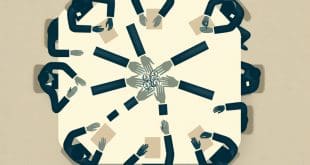The quest for grant funding is as demanding as it is critical to the lifeblood of any nonprofit organization. To secure the necessary resources for their meaningful work, nonprofit professionals often find themselves in a relentless race against time and competition. This constant pressure, while a testament to their dedication, can be the perfect recipe for stress and burnout. In this feature, we examine the challenges of sustaining one’s mental and emotional well-being while being deeply mired in the competitive world of grant-seeking.
The first casualty of this high-pressure environment is often the mental health of the professionals involved. The psychological impacts of chasing grants can be profound, with the constant search for funding leading to chronic stress, anxiety, and even depression. Recognizing the signs of burnout is crucial – feelings of exhaustion, cynicism towards one’s job, and a sense of ineffectiveness are classic red flags that should not be ignored.
In the face of these challenges, prioritizing self-care isn’t indulgent – it’s imperative. Self-care routines can range from simple day-to-day habits to structured stress-management programs. Nonprofit professionals need to find time for physical activities, mindfulness practices, and engaging in hobbies that provide a mental break from work. Boundary-setting is another critical aspect of self-care – learning to say ‘no’ can be a powerful tool in managing workloads and expectations.
Creating a culture of self-care within the organization is equally important. Leaders in the non-profit sector have a responsibility to establish workplace practices that promote mental health and prevent burnout. This might involve implementing flexible work hours, encouraging regular breaks, and facilitating peer support systems.
We also seek wisdom from those who have been in the trenches. Non-profit veterans offer their insights on handling the pressure, such as incorporating team debriefings, celebrating small victories, and maintaining a focus on the larger mission to sustain motivation. Mental health experts emphasize the importance of professional support, be it through counseling, workshops, or building resilience skills tailored to the nuances of grant-related work.
By initiating a critical dialogue on the balance between achieving organizational objectives and preserving individual well-being, we hope to encourage a shift towards a more sustainable and compassionate approach to non-profit work. It is a call to action to all stakeholders in the grants community to recognize the value of their human resources and to invest in their health just as much as they invest in their programs.
Join us in this conversation, share your experiences, and let’s build a community that supports not just the ends, but also the means to a fulfilling career in the non-profit sector.
 Grants Club Community
Grants Club Community







